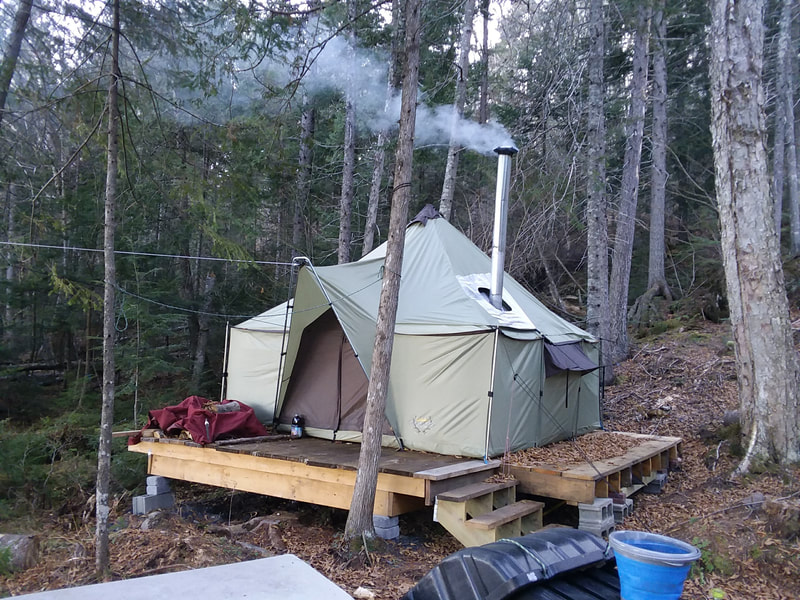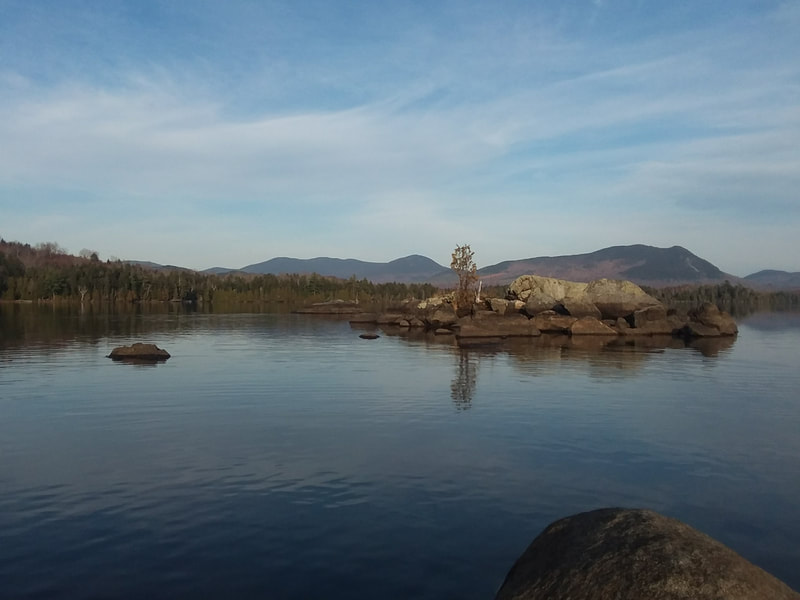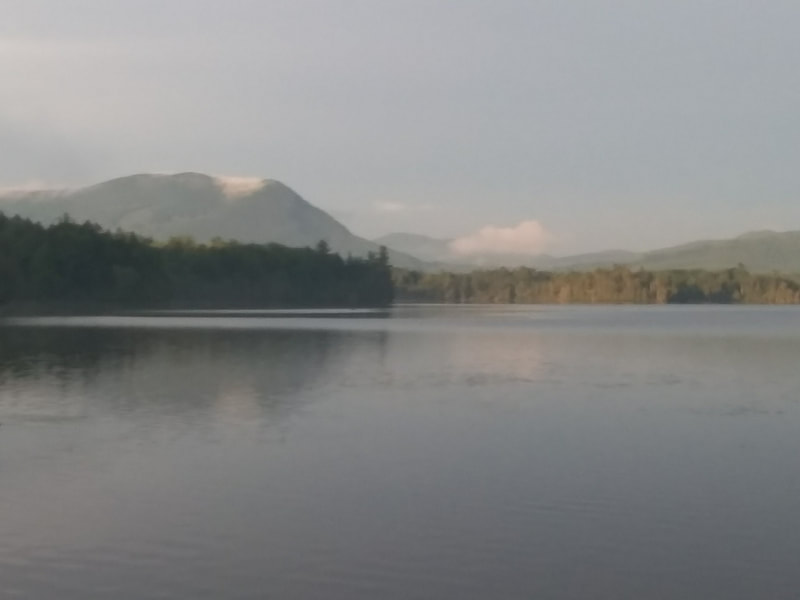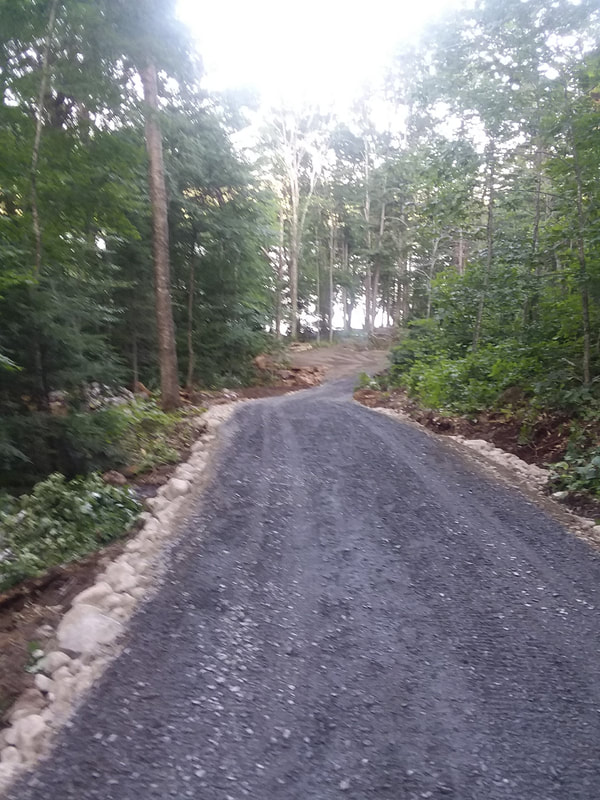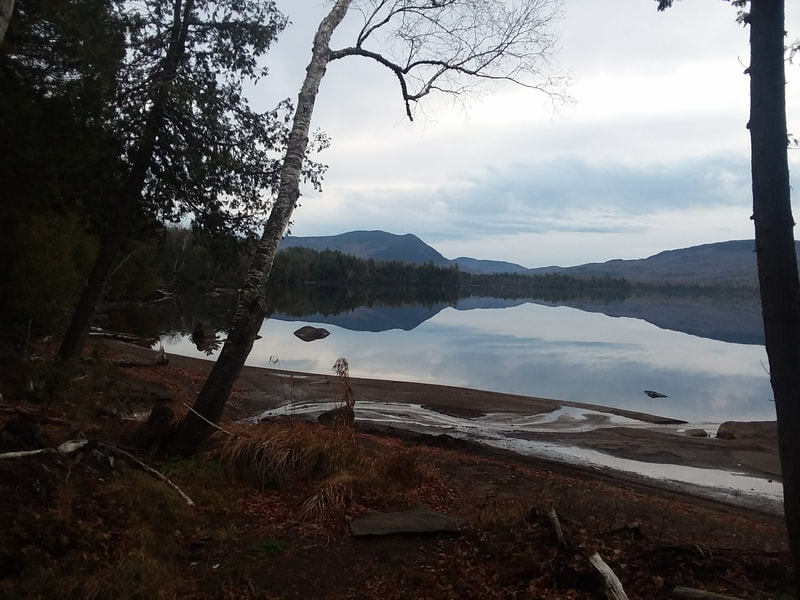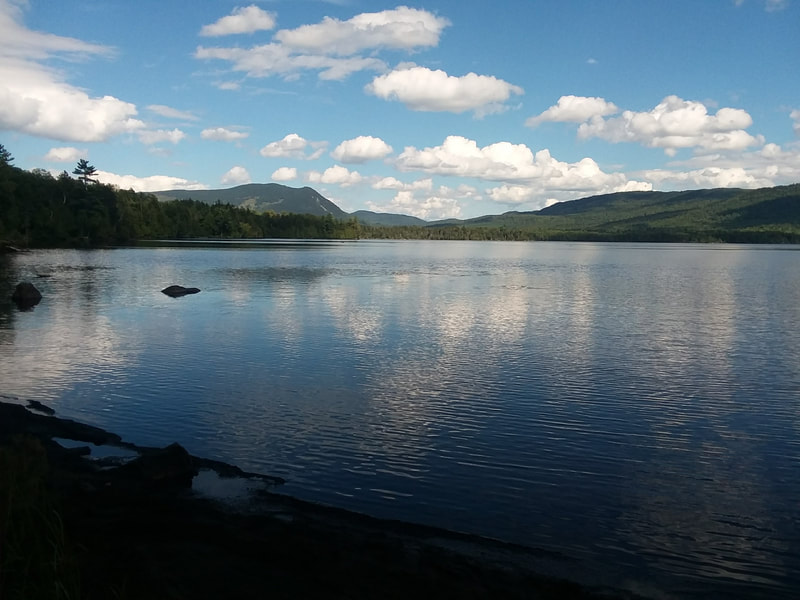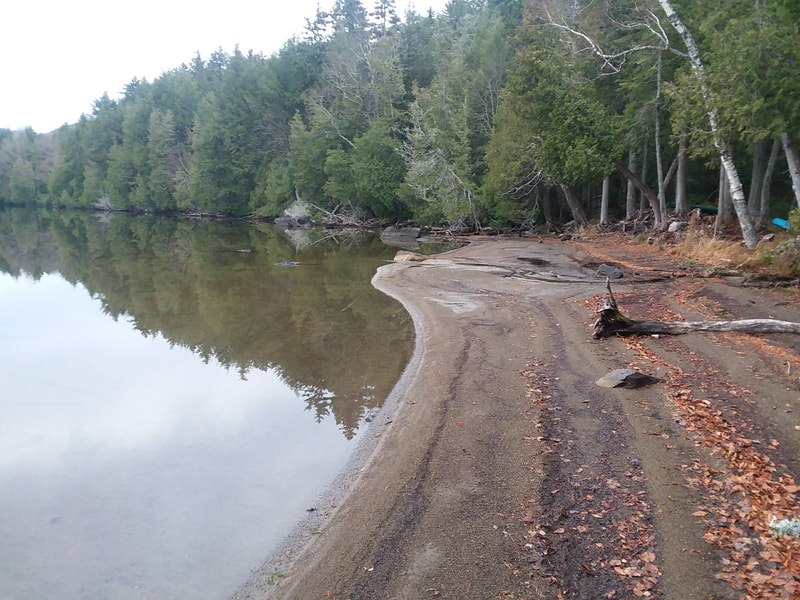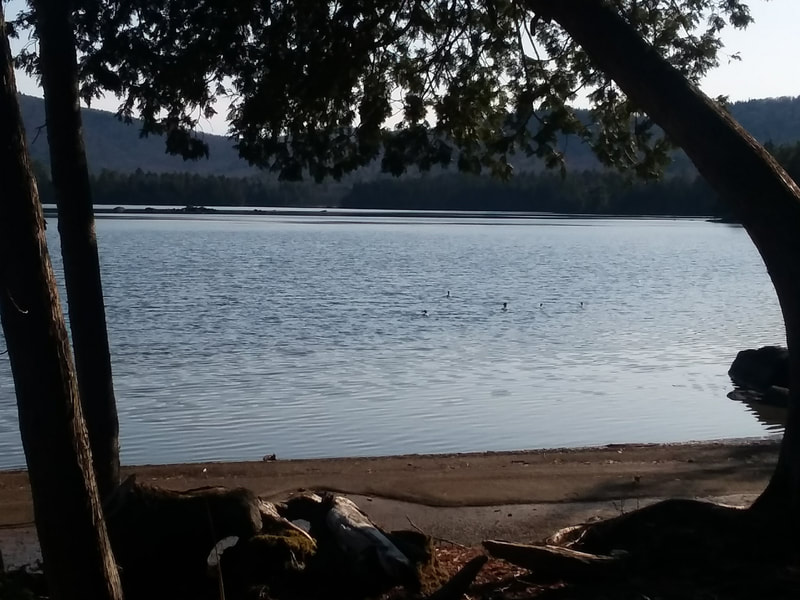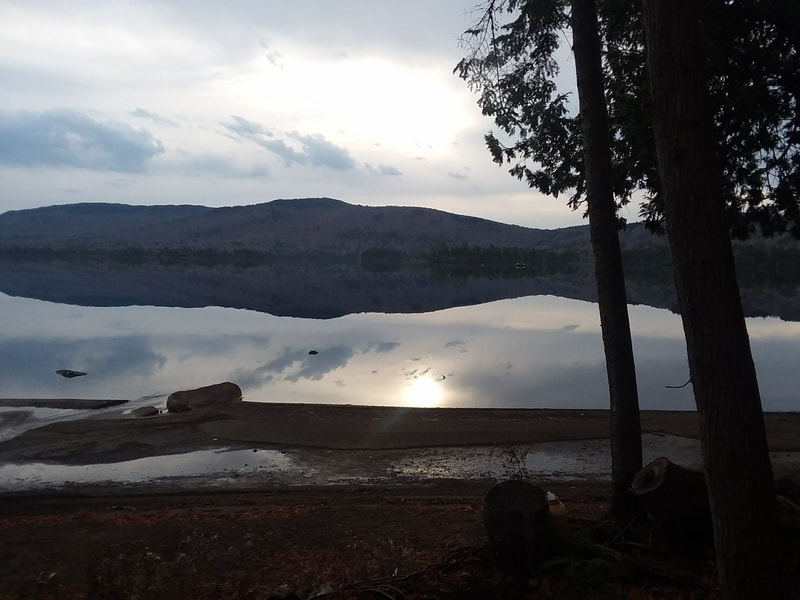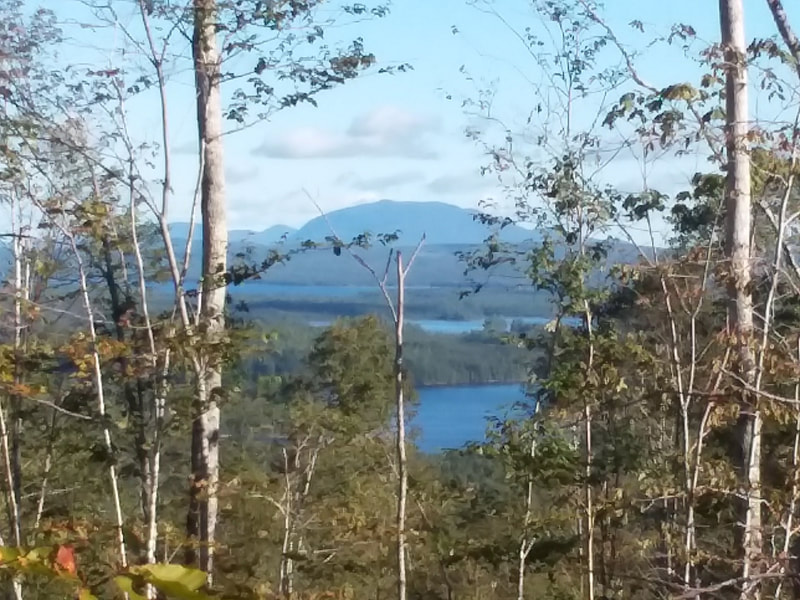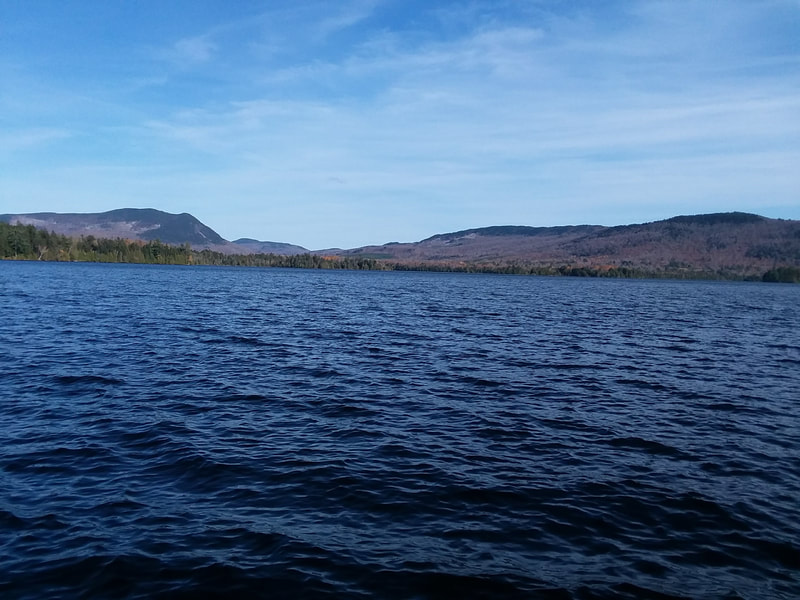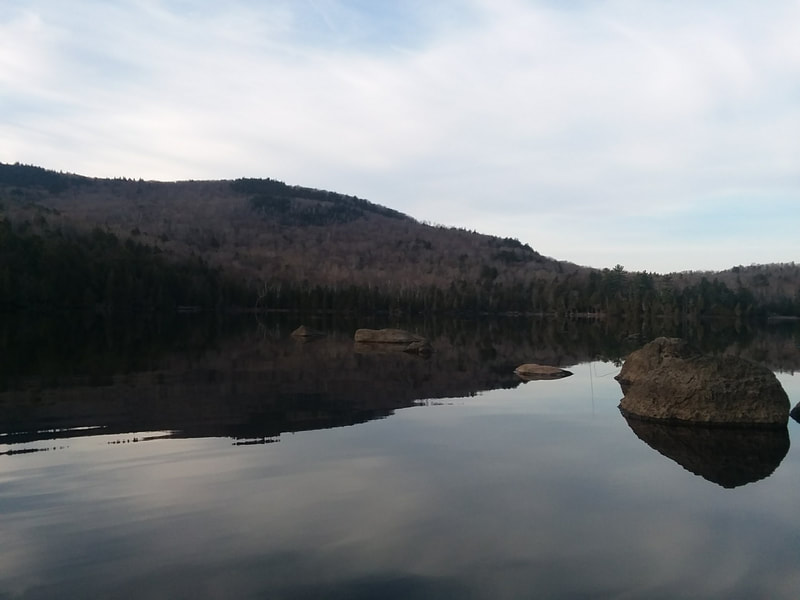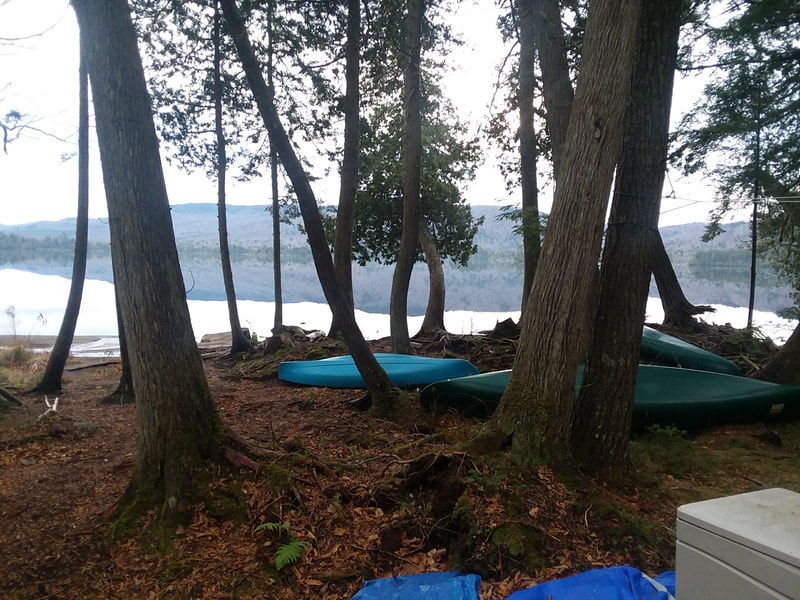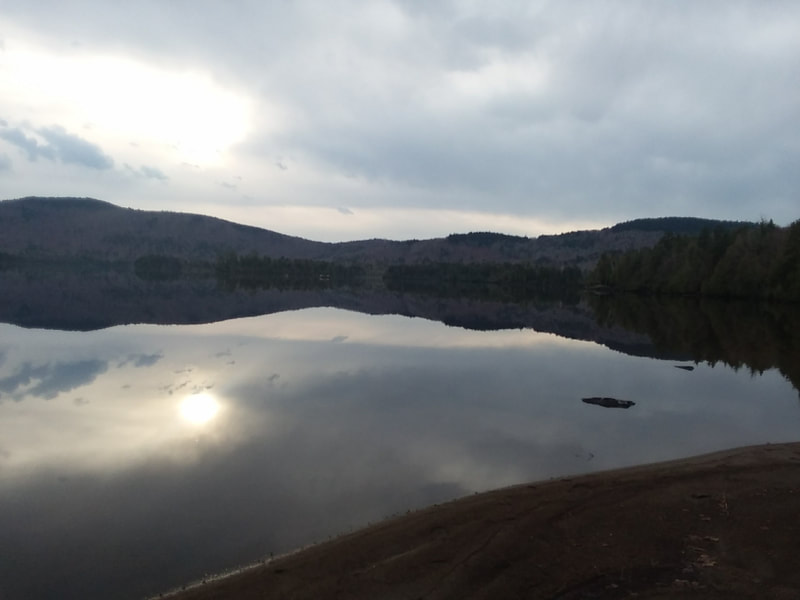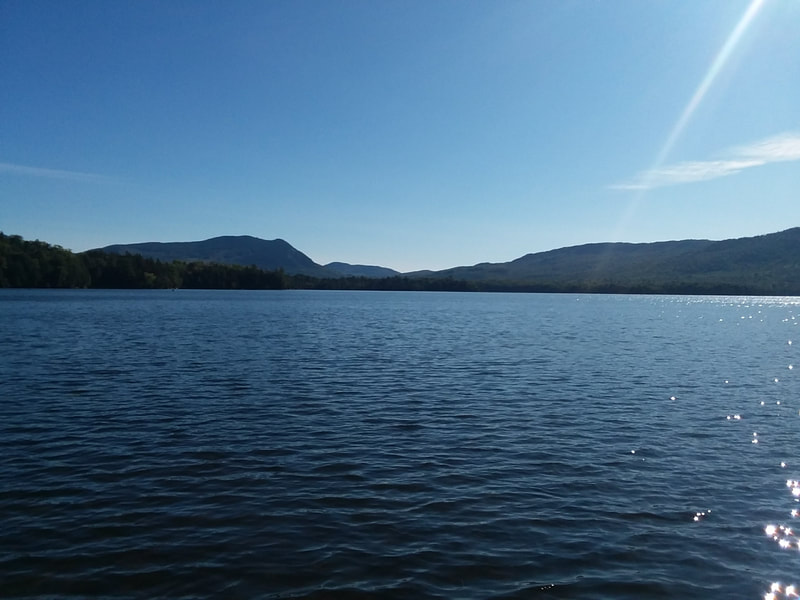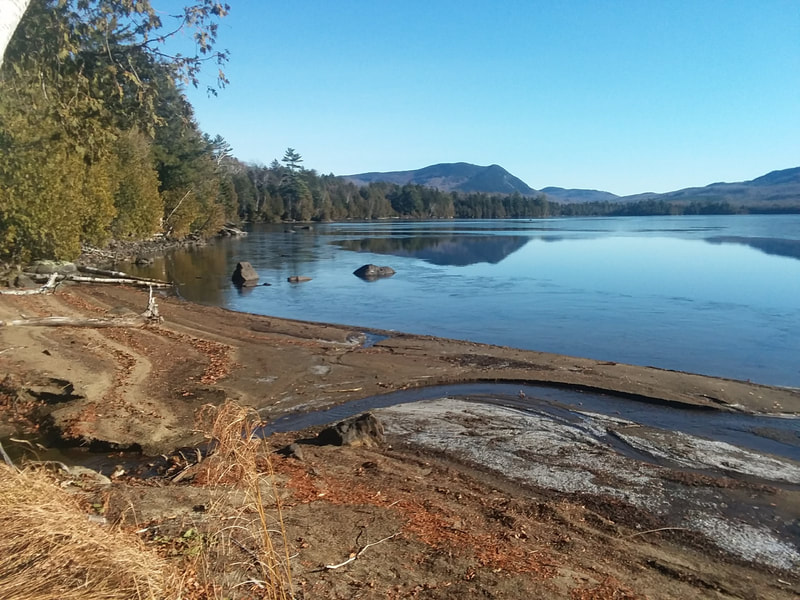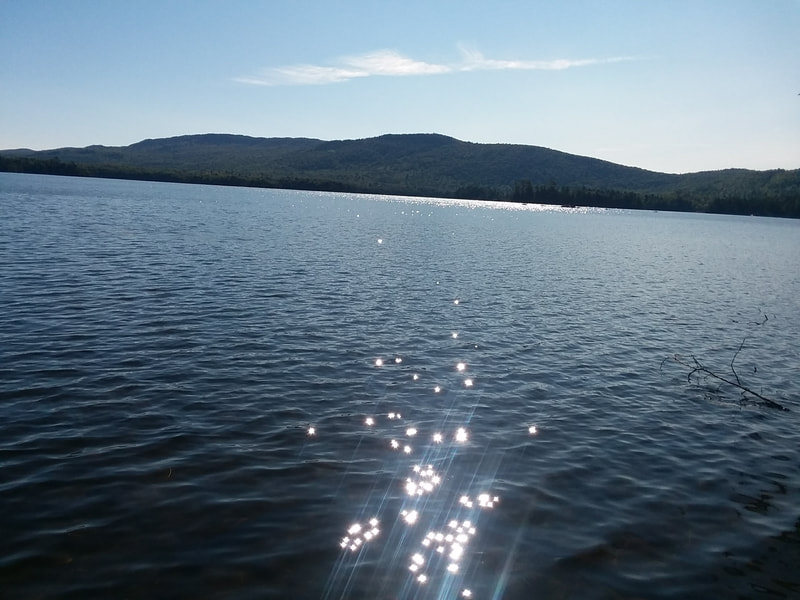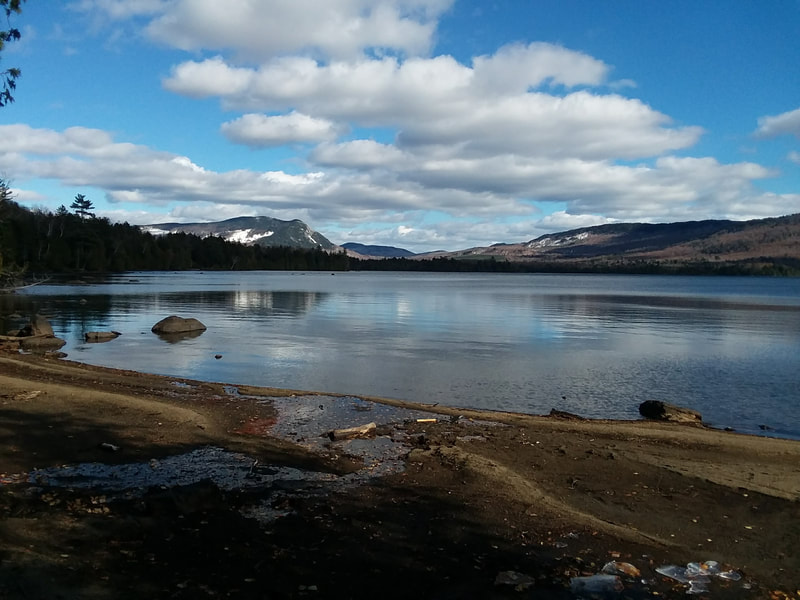|
Dragging the Lake.
Another quiet summer's morning. The babbling of the brook. Chattering of the territory red squirrels hold up in a den under the fallen log. The lake still, except for boat skimming insects marking the water's surface like a gentle summer's rain. A fish breaks the surface. One less oresman. A few familar boats along the shore. Outboard, kayak and canoe, and something new on the shore of this remote Maine lake, a sailboat. I can't wait to she her sail fill. Years before I sailed in races amid the calendar islands of Caco Bay. And those days were sweet victory but not the memories of sailing that I treasure. Foster pond and the energized afternoon sun sent me flying across the mile long, tear dropped shaped pond. My catamaran, was the fastest boat on the lake, on those days when I was young and owned the world. I would tack against the wind to reach the far end of the lake so I could jump overboard, maintaining a perilous grip on the lanyard, and while curving my body like the letter L, steer the boat back home. The wind filled the mainsail and the cat heeled perilously and fought against me to breach. But my core body was strong, my abs and quads contracting to make me the cats rudder. The rush of water against my body was like immersion in rapids. And my quest for air was not always immediately satisfied. But that's what made each drag exciting. I never learned what the other people on the lake thought of this pilotless catamaran guided by a tumultuous wake at its stern. I also never lost my grip on the lanyard, good thing, it would have been a long swim home. Alone
Can I be alone with loons crying nearby, why should they cry? Their life is seemingly perfect. Alone was the eagle who traced slow spirals in the blue canvass above this afternoon. But is he alone now, in the darkness, at his perch? Alone is the red coated fox who tried to stare me down at the edge of my firelight. Am I intruding on his alone time. Alone is the bulldog croaking for a mate. I'd croak too if nature urged me so. Alone is the single cricket, out of place in the wet area beyond the light of the fire. Am I alone on the shore of this lake with so much life around? My ears reach out for a sound but for the moment, the only sound is the ringing in my own ears. Alone with my thoughts and memories. I'm what has changed, evolved, matured. What drove me once so passionately was replaced by complacency, albeit with a modicum of contentment. Is this how we all reconcile being alone? Loons
A distant loon crys its haunting melody. Like the wolf's howel, the wail evokes an innate response but not one of fear, rather one of recognition. Most of the time the loon swims, in their small nuclear family. Often submerging for minutes at a time to reappear somewhere, unexpectedly yards away and general with a small fish its beek to feed to its young. I'm close to these ancient creatures. Loners who prefer their small family unit over a crowd of boisterous crows. These stoic passengers through life prefer the quite waters of a pond over the busy turmoil of the sea. But in the winter, when the water retreats beneath the ice, the loons move on. I've seen them in the ocean, but perhaps they migrate even further. But I've never heard a loon's cry when it isn't serenely swimming on the surface of an idyllic lake. One just called out to me. I am very close to loons. Fearless
He came in the quiet amid the stillness of the night. And made such a clamprous scene as I tried in vein to sleep. A small creature of the wood whose courage belied his size. I shouted and clapped and hit the tent with my hand, but he would not flee. He would not leave me to rest to the sound of nothingness that otherwise prevailed. Instead he would resume his torment of me mere minutes later. And I would lay cozy in my down bag, as the moon crept across the sky, washing out the countless stars waiting interminable, for his next fearless foray across the roof of my tent. How can he even climb the sharp sloping sides, it seems impossible for a mouse his size? Yet he does. How can he squeeze his body between the union of the three zippers of the tents door? Yet he did? And yes I invited him to eat through a bag of granola and he accepted. Now I can't be rid of him. He torments me, angrily wanting to be readmitted to the inner sanctum of my cozy tent. I saw his underbelly once, in the night. Illuminated by my solar powered light. His white fury belly scampering on the mesh of the screen door. Quite cute, I thought at first. What a marvel what an acrobat. As the hours of the night bleed past my thoughts of the rodent changed. I mused of poisons, and snares, or a trap that would go satisfactorily snap in the night. Dead mouse crawling across the roof of my tent. Glamping
At what point does camping become glamping. I suggest it's having the tent's door tied open and a fire in the wood stove, keeping the morning chill out. It's feet up, reclining in a fully functioning beach chair that has a cup holder, holding a steaming cup of hot chocolate. It's having a good book in your lap, and no distractions to keep you from reading. It's watching a pair of loons swim close to shore and to wonder why they're so quiet now. Perhaps it's because they're precocious child has left the pond to find a partner of its own. My life has quieted as my daughter makes her own way. There is time now to quietly swim but I'll not venturing too far from shore. The seasons change around the lake. Spring brings winter's runoff from the mountains snowpack. And the warming days bring the blackflies. The sun's warmth melts the ice on the lake and the fish flourish while feeding on the fallen insects. And the loons start their family and sometimes scold their precocious child in the night. But sometimes their call is forlorn, an amber alert for a child gone missing. The call at times can also be joyous, a trill saying there are fat fish below. The fledgling learns to swim before diving, and fly last of all. A child learns to crawl before walking and run before climbing. How high a loon will fly, its parents will never know. But people are much more fortunate, because we have phones and holidays, vacations and camping adventures that follow. Sunset
I watched the shadows lengthen over elephant mountain, as the sun dipped below the ridge behind the camp. The lengthening shadow were like eyes slowly closing on another day. As the earth readied for slumber. I wondered about the lives lost in the B52 crash of 63. And the rusting metal remains that still clung to the mountain side. There was a landslide a couple of years ago, beneath the elephant's eye. And the scar that remains looks like tears. I suppose of you're a mountain it might take half a century to cry for loss. I suspect and hope the men died instantly on that frigid stormy night. As that's the way when men challenge an immovable monolith. We must bend or die because it never will. There's too little light now, the mountains have lost there green luster. They're each a muted blue as twilight descends. Cycles of life and the physics of the world can be more evident in the stillness of a sunset as it is under the fluorescent glare of a classroom. It's dark now, except for the light I made. Firelight and a solar light inside the tent. The moon is rising late. Last night I woke thinking someone was shining a flashlight on the tent. But the moon had cleared the distant mountain peak. It's only 8:20. Another cycle as the 9:30 days of twilight were back in June. Still June has bugs. And I'm sitting still beside the firelight without a buzz. I ran over the ridge, ok I jogged walked. I'm so petered after six miles that I struggled to finish in under 2 hours. 1:58;30. I did it. My heart rate was the highest at the end and it was the only time I would say I ran. Tomorrow I plan on hiking up to the view with my camera then jog back . It's less than half way. From the peak there are many lakes and katadhin looms in the distance. It's amazing what you can glean from the world around you when you have the advantage of elevation. The Dawn
The dawn comes late to the lake in November. Soon the ice will be free to shrowed the entire lake and stop the babbling brooks gentle chatter. And the chill will become midday freeze and then, even the marching waves at the shore will cease their parade, and be held firm by the grip of winter. But today, there is still a hint of warmth in the sun, which is too tired to rise high. And the winds that so often blow northeast lay dormant, waiting for the ire of the sea. Today I woke to a repetive tapping, passing unobstructed across the lake. I lay cozy in my sleeping bag and thought it may be a woodpecker, warm in his down and drilling for a grub. But no, the sound is too rhythmical. The tapping incessant, like water torture, tap, tap tap on my forehead as I tried to sleep. "What the hell." I spoke to a tent filled with my friends. But no one was there to hear. I got up and stepped outside. The circle of ice floated across most of the lake. It's a thin layer of ice today, just imperfect gloss that covered most of the lake, except for 20 yards, that ringed it like a hang man's noose. The sound came from the water, that remained circling the ice. It was a football field away, that I saw Abe paddling an old wooden canoe. I smiled and appreciated what I imagined he was appreciating, for I was once the boy who lived beside the lake. And I also grew up knowing the seasons around a Maine lake. Every year, since the mile tall ice sheet receeded back to the artic, season have been the same. It's been a seasonal ebb and flow of the ice forming and deforming. And I've witnessed many more of these transformations then I care to mention. In my youth it wasn't a wooden canoe, but an old wooden rowboat that I used against forming ice. That old rowboat has a story to tell. She changed color more frequently than a camelion, depending on whatever paint color my dad had left over from a job. My mother often joked that the old wooden boat was held together more by layers of paint than by nails and glue. But my mom didn't appreciate her, the way my dad and I did. Every other spring it seemed, it was time for the old girl's make-over, not my mom --the boat. My dad and I, okay mostly my dad, would wrestle the boat up on the shore and he'd, with some feat of superhuman strength, heave first the stern than the bow up on saw horses. Here, on my dad's operating table, he'd inspect her as a concerned physician may his patient. He'd graft plywood here over the bow. And make other grafts, as needed along her hull. With the repairs complete we painted. I liked the smell of paint and the easy to sense feeling of accomplishment when the job was complete. Then we'd flip her over, making any necessary repairs, and paint the inside too. I didn't like painting the inside so much. It was harder work because of the narrow space at the bow and the three seats, just wooden boards, that spanned the interior at even intervals. Like most of my dad's repair jobs, she wasn't much to look at (bird feeder), but she would hold up. As you can imagine, she was also difficult to row straight, but she did keep out the water--mostly. I know it's my fault that we needed to repair her as frequently as we did. I'll give you a hint, I nicknamed that boat "The Manhatten". Okay, at the time I was 12, she's not named after a drink, or an island, but after a US icebreaker. A huge vessel built to plow into ice and crush the ice beneath. So picture a 12 year old, rowing hell bent towards this gire of ice, crashing into until jolted to a dead stop. I'd scramble to the bow and balance on a triangle board at the tip, no greater than 8x6, and hop up and down, under my full weight, admittedly a lot less than now, until the ice wood break beneath the boat. Then I'd row backwards, 10 yards or so, and paddle determinedly towards the wall of ice again and again. In the hopes of thwarting winter or encouraging spring. Is it a wonder we repaired that boat so often? |
|
